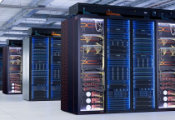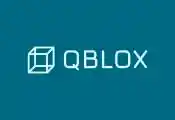SEALSQ to Make Cloud-Based Quantum Computing More Accessible and Affordable
Geneva, Switzerland, February 24, 2025 -- SEALSQ Corp ("SEALSQ" or "Company"), a company that focuses on developing and selling Semiconductors, PKI, and Post-Quantum technology hardware and software products, today announced that is working with its partners to bring quantum computing to the cloud, making this transformative technology more accessible to businesses, researchers, and developers.
Cloud-based quantum computing enables users to run quantum algorithms and experiments remotely without the need to own physical quantum hardware. A quantum computer on the cloud is a remotely accessible quantum processing unit (QPU) that allows users to execute quantum algorithms via platforms provided by IBM, Google, Microsoft, Amazon, and Rigetti Computing. Users can develop programs using industry-standard languages such as Qiskit (IBM), Cirq (Google), and Braket SDK (Amazon), submitting them for execution on real quantum hardware or simulators.
Recently, SEALSQ invested in ColibriTD to integrate its Quantum-as-a-Service platform into SEALSQ’s Quantum Roadmap. This move aims to advance post-quantum security and promote the adoption of quantum computing. ColibriTD specializes in solving complex mathematical problems for industries such as aerospace, energy, and defense, particularly in simulations and material science.
How This Enables Quantum on the SEALSQ Cloud Service
1. Quantum-Enhanced Cryptography
- The integration will allow SEALSQ to generate truly random numbers using quantum-based RNG, making encryption keys stronger and resistant to quantum attacks.
- This will be critical for secure cloud storage, authentication, and digital identity services.
2. Post-Quantum Security on the Cloud
- SEALSQ can integrate quantum-resistant cryptographic algorithms into its cloud services, ensuring that customer data remains secure even when quantum computers become powerful enough to break traditional encryption.
3. Quantum Simulations & Optimization
- SEALSQ can offer quantum-powered simulation tools for industries that need high-performance computing (e.g., material science, AI optimization, and aerospace simulations).
- Cloud users will benefit from faster problem-solving compared to classical computing.
4. Quantum Sensors & IoT Security
- Quantum sensors could enhance cloud-based IoT security by providing ultra-precise anomaly detection and tamper-proof authentication for connected devices.
5. Scalability of Quantum Services
- By embedding Quantum-as-a-Service into SEALSQ’s cloud, companies can access quantum computing resources without having to build their own infrastructure.
- This will allow for on-demand quantum computing for secure transactions, AI models, and cybersecurity applications.
SEALSQ’s initiative aligns with the industry’s pay-as-you-go model, which charges users based on execution time, shots (circuit runs), or subscription plans. Quantum cloud computing supports hybrid computing, combining quantum processors with classical computing for optimized performance. Leading providers also offer error mitigation tools to counteract the noisy nature of current quantum devices.
Overall, the cost of quantum computers varies widely based on capabilities, intended use, and access methods.
- Access method: IBM Quantum offers superconducting qubit-based processors. Amazon Braket connects users to D-Wave, Rigetti, and IonQ quantum computers. Microsoft Azure Quantum partners with IonQ, Rigetti, and Quantinuum. Google Quantum AI provides select users access to its Sycamore processor for research and development. Cloud-based quantum computing is driving breakthroughs in various industries, including optimization for logistics, scheduling, and resource allocation, quantum cryptography for ultra-secure communications, drug discovery by simulating molecular structures to accelerate pharmaceutical development, and machine learning through quantum-enhanced algorithms.
- Segments: Cloud-based quantum computing is driving breakthroughs in various industries, including optimization for logistics, scheduling, and resource allocation, quantum cryptography for ultra-secure communications, drug discovery by simulating molecular structures to accelerate pharmaceutical development, and machine learning through quantum-enhanced algorithms. Google Quantum AI provides select users access to its Sycamore processor for research and development. SpinQ Technology offers desktop quantum computers for educational purposes, priced between $5,000 and $50,000.
- Capabilities: PsiQuantum is collaborating with governments to develop a fault-tolerant quantum computer, with investments reaching $1 billion. D-Wave Systems provides quantum annealing systems for optimization problems, with a 2000-qubit system priced at approximately $15 million.
- As quantum computing technology advances, cloud-based services are expected to become more affordable, featuring higher qubit counts with improved error correction and seamless integration with classical cloud computing. SEALSQ aims to be at the forefront of this evolution, ensuring a secure and scalable approach to quantum computing adoption.



































